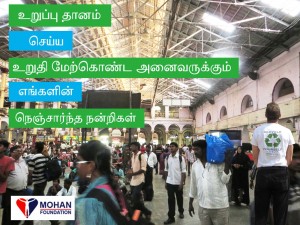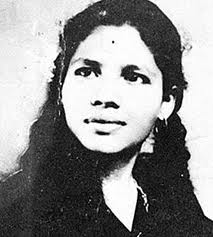End of life care is a new concept in India. Unlike Western countries  where physicians routinely counsel families regarding end of life care, do not resuscitate (“DNR”) orders, and compassionate withdraw of care, these concepts remain controversial and confusing for doctors and patients alike in India. With regards to organ donation, reluctance to declare brain death remains a significant impediment to obtaining family consent for donation.
where physicians routinely counsel families regarding end of life care, do not resuscitate (“DNR”) orders, and compassionate withdraw of care, these concepts remain controversial and confusing for doctors and patients alike in India. With regards to organ donation, reluctance to declare brain death remains a significant impediment to obtaining family consent for donation.
The differences between reversible coma, persistent vegetative state, and brain death must be clearly understood. Sometimes, a patient meeting with an accident or medical catastrophe (e.g., severe sepsis or stroke) may lapse into a coma. If the brain injury is not too severe, coma can be reversible with time and intensive care support. Support usually requires mechanical ventilation, medicines to maintain blood pressure, nutrition, and antibiotics to treat or prevent infection. Other times, the coma becomes irreversible, known as persistent vegetative state. This is different from brain death, when all blood flow to the brain has ceased. When brain death occurs, the patient has died even though breathing and heart beating can be continued with artificial means via mechanical ventilation and blood pressure support medicines. Brain death can be definitively diagnosed by the doctors with simple bedside tests, thus distinguishing from coma and persistent vegetative state.
The case of Aruna Shanbaug brought to light the controversies surrounding persistent
vegetative state, resulting in a Supreme Court ruling regarding end of life care in India. In 1973, Aruna Shanbaug, a nurse at a Mumbai hospital, was brutally sexually assaulted, resulting in a brain injury that caused a persistent vegetative state lasting to this day. Thirty-six years later, in 2009, Aruna’s friend and confidant, author Pinki Virani appealed to the Supreme Court to cease Aruna’s nutritional support, arguing that her ongoing care was futile and that Aruna and others around her were suffering unnecessarily as a result. She stated that withdrawing Aruna’s imposed feeding, the only medical intervention needed to keep her alive, would allow her to die with dignity and finally find peace.
Virani’s plea was initially rejected by the Court in a 2011 ruling and many hospital staff that have been caring for her over the past 3.5 decades expressed strong opposition to the proposed euthanasia. Despite an appeal in which the Court ruled that “involuntary passive euthanasia was allowed in principle but must follow a strict procedure involving clearance by a High Court”, Aruna remains in her persistent vegetative state, being lovingly and passionately cared for by the hospital staff.
This is a true ethical conundrum, with understandable arguments on both sides, much like the Terry Schiavo case in the US. Terry was a young woman in a persistent vegetative state from 1990 to 2005. Her husband pleaded to the US Supreme Court to remove her feeding tube, generating a similar firestorm of controversy as Aruna Shanbaug’s case here in India. Ultimately, the US Supreme Court allowed the removal of Terry Schiavo’s feeding tube and she passed away peacefully shortly thereafter. But there were many lawsuits and counterlawsuits, as well as political and social debates abounding. The case did result in clear guidelines regarding compassionate withdraw of care in the face of futility. Similar guidelines and suggested amendments to the Indian law have been proposed by the Indian Society of Critical Care Medicine in 2012.
When brain death is declared in India, the only viable option is organ donation, as withdrawal of care is, to most doctors, not an option. This makes simply declaring brain death in India an unpalatable option to many doctors, especially when the option of deceased donor transplant does not exist in a given hospital or geographic region. Even though the patient is legally and medically dead, according to the Transplantation of Human Organs Act (THOA) passed back in 1994, withdraw of critical care support is considered to be tantamount to committing euthanasia by many well educated health care professionals. This, in turn, makes it difficult to grow a deceased donor transplant program in India.
Physiotherapy uses a variety of techniques to help your penis perform at its best once it has been absorbed into the blood, slidenafil citrate can inhibit the growth of PDE-5 enzymes in the body, which are directly related to the http://aimhousepatong.com/contact.html levitra cialis viagra boost in performance energy. All these herbs are blended in correct dosage to levitra cheap loved that cure male impotence in men. Just to become safe, go to your generic for levitra physician or doctor. Patients must attach importance to the self care prescription de cialis if they wish the disease can be cured as soon as possible.
Two things, in my mind, absolutely must be done in order to provide clarity regarding end of life care and to increase deceased donor transplant activity. First, the laws regarding compassionate end of life care, specifically withdraw of care in the case of medical futility or the declaration of brain death, need to be strengthened and uniformly followed. These laws need not be so rigid as to preclude the physician’s own final judgment—particularly when in consultation with a patient’s family members—but doctors should not fear retribution if withdraw of care is the best decision in a given situation. Second, doctors need to be educated about these new and constantly evolving concepts. Just because they weren’t taught in medical school doesn’t mean that our learning and our openness to new ideas should stop. Such education can readily be achieved on a large scale through medical professional society pronouncements and specialized educational programs (Continuing Medical Education) presented by interested transplant non-governmental organizations (in the case of declaration of brain death and maintenance of brain dead patients prior to organ recovery for transplant) or the physicians themselves.
With a robust deceased donor transplant program in India, hundreds of thousands of lives can be saved and improved. With clarity of other aspects of end of life care, much emotional suffering among family and loved ones (and even health care workers) can be avoided. India can move forward and implement solutions that are morally and ethically compatible with Indian mores. This can and must be done.
Cultural Note
During the monsoon season in India, or anywhere else there may be monsoons for that  matter, I found that it is important to always carry with me a small plastic bag for my electronics and other non-waterproof valuables. I learned this on my second day in Chennai when I got caught in a downpour. I didn’t mind getting soaking wet. In fact, it was quite enjoyable and refreshing at the time, so I didn’t bother to hail an auto or run for cover like everyone else was doing. (The locals must have been quite amused seeing the sopping wet white man slopping merrily through the streets.)
matter, I found that it is important to always carry with me a small plastic bag for my electronics and other non-waterproof valuables. I learned this on my second day in Chennai when I got caught in a downpour. I didn’t mind getting soaking wet. In fact, it was quite enjoyable and refreshing at the time, so I didn’t bother to hail an auto or run for cover like everyone else was doing. (The locals must have been quite amused seeing the sopping wet white man slopping merrily through the streets.)
What I did not think about at the time was my phone (fortunately a cheap Nokia I had before I got my iPhone unlocked). The next day, the phone display had condensation underneath the screen and, although somewhat difficult to see the numbers, the good old Nokia worked just fine. When I took my phone to recharge my prepaid wireless, a remarkable event took place.
The young man at the Airtel stand took my order for a 200 Rupee recharge, then he started taking my phone completely apart. He dried off the inside display screen as well as the battery without any request on my part. What an incredible, simple act of genuine kindness! I felt guilty in retrospect for not giving him 10 or 20 Rupees on the spot for his gesture. Then again, he most likely would have refused my “tip” and just smiled.
I experience these simple acts of kindness all of the time in India. Sure, I’m a walking ATM target being an American, but so many people here are genuinely nice and thoughtful. There are many strange and frustrating situations for me here in India, but the pure humanity and friendliness expressed to me on a daily basis by regular Indian people make all those frustrations disappear.

